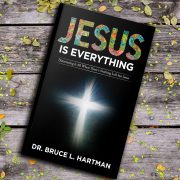Do not be astonished that I said to you, ‘You must be born from above.’ The wind blows where it chooses, and you hear the sound of it, but you do not know where it comes from or where it goes. So it is with everyone who is born of the Spirit.”
-John 3:7-8
SEEING SPIRITUAL WINDS
On this dark night near Jerusalem, Nicodemus is struggling to understand the message of God. Nicodemus was from the ruling class of the 1st century Judean society. He had nearly everything, wealth, a member of the Sanhedrin and status. Yet here he was, trying to learn what Jesus had to offer. He came to Jesus in the darkness part of the day, at night, so that he wouldn’t be seen. He had a yearning for God and deep in his soul he knew Jesus was the answer. Torn between the trappings of his material life and the desire to know God, he visits Jesus.
Struggling he tries but he doesn’t get what Jesus is saying. All that he had and knew was at risk, preventing his full comprehension of what Jesus had to say. Knowing this Jesus was frank and to the point, he tells Nicodemus, “You must be born from above. The wind blows where it chooses, and you hear the sound of it, but you do not know where it comes from or where it goes. So it is with everyone who is born of the spirit.” -John 3:7-8
Jesus’s point compares the spirit to the wind. God directs the spirit and the wind. He is simply telling Nicodemus, that if he is with God and born from above, then he would know that the wind or life isn’t for him to control. Those in commune with God or born from above understand the wind and the spirit. They know God is sovereign. He is also telling Nicodemus that he is trapped in the world. Matthew Henry , the famous 17th century theologian, explains it in this way, “Thus the things of the Spirit of God are foolishness to the natural man. Many think that cannot be proved, which they cannot believe.” Nicodemus is at a crossroad in his life. Does he accept Jesus’s answer, which threatens his wealth, power and status, or does he return to his old life and still have a thirst for God that can’t be satisfied by the natural life.
For those us peering into this story, we know the choice Nicodemus should make. A test that he has to take in the school of life, that has only one question. Perhaps we feel like screaming out, “choose the wind!” Almost as if we are watching a science fiction movie and we are encouraging the main character to not go into the dark room. We all know the answer and what we would do.
This is the same question we are asked every day, sometimes every hour. Do we choose the comfort of our life or choose the wind. Nicodemus has a lot to give up. Many from the ruling elite in the first century wanted Jesus taken care of or at least silenced. He posed a threat to all they had. To embrace the message of Jesus threatened all that Nicodemus had achieved through the world.
For those of us in the twenty first century, the question on our own life’s test is the same. Which path do we choose?
Blessings, until next time,
Bruce L. Hartman
“Do not worry about anything, but in everything by prayer and supplication with thanksgiving let your request be known to God.”
– Philippians 4:6
THE SIMPLE ELEMENTS OF PRAYER
Prayer is an essential part of developing a strong faith. Through prayer we converse with the sacred and begin a dialogue about our life. We either hear or see responses. At first there might not appear to be answers, but over time they begin to become revealed through the events of our lives as we move deeper in our relationship with God. Our prayer life expands and we stretch out the boundaries of prayer.
As we go deeper, prayer becomes a regular part of our day and our faith is strengthened. We also begin to expand the context of our prayers, leading to a richer prayer and faith life. We begin to see that there are four elements of prayer that can be said as individual prayers or in many cases included together in a single prayer. They are:
- Prayer of Adoration to God. This element reflects our faith in God and the sovereign nature of God. It is also a praising of God. In the Lord’s Prayer, we see it expressed as “Hallowed be thy name.”
- Prayer of Petition. This is where we request and ask for God’s help. Simple words expressing our needs. In the Lord’s Prayer, we see this expressed as “Give us our daily bread.”
- Prayer of Intercession. It is here we are being a good neighbor. We are asking for life assistance for a friend. We are asking God to intercede on behalf of our neighbor. In the verse “Give us our daily bread,” by using the word “us” we are not only asking for ourselves, but also for our neighbor. Prayers of intercession that stand alone usually contain a more direct request.
- Prayer of Thankfulness. This element of prayer is when we take the time to thank God for his involvement in our lives and reflects our gratitude for all that God has done for us.
God wants us to pray with our hearts. Accomplishing this requires an emptying of our thoughts or emerging somehow into a state where we are uniquely alone with God. A place that soothes us and frees our minds for this sacred conversation, centering ourselves to only be focused on God. It is our heart that God wants, free of daily tasks and our to-do list. Many people find a quiet, comfortable place to pray, a routine in the morning that moves them away from the world.
God wants us to be in prayer continuously, and he wants to hear our desires. Being overly prescriptive with our prayer life can make it rigid and meaningless. There are only a few guidelines that I can offer to people who ask me how to pray.
- As it is in the Lord’s Prayer, I suggest always starting with a praising of God. In this statement we recognize the sovereignty of our relationship with God.
- Always treat prayer as a sacred act.
- Ensure that you are in a place and mindset that will be free of distractions.
- Pray through Jesus and recognize the redeeming aspect of Jesus.
- Pray truthfully—God knows the truth about you already!
Praying seems hard at first. We ask what we should pray for? How do we pray? By following these simple steps we can engage in a healthy prayer life. While we should pray in desperate situations, we should also remember to pray with thanksgiving. God wants a full relationship with us, not just in those times of stress, but in all our joys as well. When we pray as if we are an open book we allow a richer conversation with God. A powerful faith is developed through a rich prayer life that in turn honestly observes God’s response.
Blessings, until next time,
Bruce L. Hartman
“So, if anyone is in Christ, there is a new creation; everything old has passed away; see everything has become new!
(2nd Corinthians [5:17] NRSV)
LEAVING THE PAST BEHIND
A client of mine had a very personal self-inflicted catastrophe. After living a life that was driven to pursue power, money and fame, he took a step too far. As he achieved more and more, he began to cut corners in all aspects of his life. He began to see his friends and family as a way to get what he wanted and ignored their human value. He had become trapped in the lure of power and took the fateful step that went to far. Exposed by sin as an impostor, he began the process of re-evaluating his life and began the long road back. He turned to Jesus and accepted the yoke of being born again.
He changed his priorities. He began to work to provide for his family and not for himself. He re-entered the church and began to be a person of service. He relearned the values of “loving his neighbor.” He came home to be with his family and avoided late night meetings. With these changes he received forgiveness from those close to him. While the climb back was hard and uneven, he persisted and stay riveted on the values of Jesus. In our meetings, I noticed he had one hard step left to climb, he had to forgive himself.
“The Apostle Paul tells us that when we fully turn to a life with Jesus we become a new person or creation.”
In today’s verse attributed the Apostle Paul, we see the term new creation. The Apostle Paul tells us that when we fully turn to a life with Jesus we become a new person or creation. Our priorities change and we change. Life is new. It is not that we don’t have to pay for the consequences of our past, but the past no longer defines who we are. When we reconcile with God and our neighbor, we are forgiven. However, the hardest person to forgive for our past is ourselves. We drift back and fall into despair when we think about our past. We question who we are and become embarrassed at what we have done. We can’t release ourselves from our past.
“It is in the present, as a new creation with the Lord, that Jesus wants us to reside.”
For my client his hardest critic was himself. He tried to over achieve in his new life to escape his past. Every error in judgement brought on harsh self-criticism. He couldn’t forgive himself and tried to outrun his past. He over helped and over apologized. He hadn’t released himself, in spite of the renewed acceptance from friends, family and Jesus. He couldn’t move away from the regret of his past and his recovery wasn’t complete. Each journey he took to review his past brought horror and self-loathing. Eventually, he believed the words of Paul and moved forward. Eventually, he accepted the love of his family, friends and Jesus. Eventually he stopped judging himself based on the past and looked to the present. It is in the present, as a new creation with the Lord, that Jesus wants us to reside.
Blessings, until next time,
Bruce L. Hartman
“My Father is still working, and I am also working.”
– John [5:17] (NRSV)/p>
THE CEREAL TYCOON
Henry Parsons Crowell, was the founder of Quaker Oats. He lost a lot in the early part of his life. His father died at thirty-six of Tuberculosis. He himself nearly died from the same disease. He wasn’t able to get a high school diploma, because of his father’s death. His first wife died after two and a half years. The first part of his life was hard. By 1885 he had started to have some success in business and bought a company called Quaker Oats. He made one small change to the company. Instead of selling his cereal in large barrels, he introduced the smaller containers we are familiar with today. Soon Quaker Oats became available in grocery stores throughout the country. During the depression of 1893, it served as a staple for many American families.
“If my life can be lived so as to please Him in every way, I’ll be supremely happy”
Soon after, Henry remarried and began to use his faith life to help others. He introduced God into the business world and others tycoons, such as John Rockefeller. He and his wife would travel the country, contributing to many organizations. In some years he would donate to one-hundred organizations. He is famously quoted as saying, “If my life can be lived so as to please Him in every way, I’ll be supremely happy”. In the last years of his life, Henry was constantly working for the Lord.
“Every action, twenty-four hours a day, seven days a week, that helps God and humankind is in concert with God.”
Jesus makes a statement about working for God. The back story to the verse is that he has just healed a person on the Sabbath. The religious elite complained mightily and tried to use this activity against Jesus. Jesus’s reply speaks directly to our Christian behavior. He extends our work for God to Sunday. We have our work lives, that we use to pay our bills. From that we should have a Sabbath. We also have the work of the Lord, which never ceases. Every action, twenty-four hours a day, seven days a week, that helps God and humankind is in concert with God. We need our rest and we should take it, but not be wedded to legalism, but to the spirit of God.
Henry Crowell died in 1948. He left a large trust. The trustees of this trust have a clear directive, “To carry out the Mr. Crowell’s wishes to honor the Lord who he loved and served during his life on this earth.” Over the years the trustees have kept this wish alive. Each year they issue close to one-hundred and fifty grants, totaling millions of dollars. Well past his death he is still working for the Lord. He was dubbed the Cereal tycoon. A life of riches created by one small change to his business. But also a life that worked endlessly for “the Lord he loved.”
Blessings, until next time,
Bruce L. Hartman
“Truly I tell you, just as you did it to one of the least of these who are members of my family, you did it to me.”
– Matthew [25:40] (NRSV)
HOW DO WE TREAT THE LEAST OF THESE?
When my sister was in her early teens and then living with my parents in a distant and poor part of the world, discovered a stray cat. She patted the reluctant cat and earned its trust. Then brought the cat home and pleaded with my parents to keep the cat. My parents, always kind and accepting, welcomed the cat and named it Casey. My sister at this early age showed unique compassion for the disadvantaged, which carried into her adult life. Today, as a professionally trained social worker helps children in distress. The cat that my sister brought home was no ordinary cat. After years of abuse and having to fend for itself in the streets, it was ornery! If you sat on the couch Casey was sleeping under, Casey would reach out and scratch your leg. We would howl and complain. My sister would kindly remind us that she has had a tough life and to forgive her. A reminder of our Christian attitude.
Over time, Casey became a legend in our house. She was known as the unsociable cat. People would come to visit and we had to caution them where to sit. Generally, Casey kept to herself unless her space was invaded. In spite of her unsavory behavior, she always found food placed for her in the morning, she had the freedom to roam the yard and a warm place to sleep every night. She also had a protector, my sister. Casey lived for another ten years, but during this time became part of the fabric of a family, whose lore is still discussed today.
“Jesus makes no distinction about a person based on race, gender, socioeconomic circumstance or locale. All are members of his family without bias in any direction.”
In today’s verse, Jesus reminds us that “all” are part of God’s family. Even the “least of these.” Jesus makes no distinction about a person based on race, gender, socioeconomic circumstance or locale. All are members of his family without bias in any direction. Jesus cares about the person and their hearts. Jesus knows our life circumstances and chooses to help us in spite of our pasts. Jesus knows our hidden terrors and past disappointments. Jesus knows our blind spots and continues to accept us. Jesus is very protective of his flock and cautions us to treat everyone, as he does, equally. He asks us to treat people, as he does, with an awareness of people’s life circumstances.
“Jesus wants us to treat people as if we are talking to Jesus, himself.”
Many times we meet people who are troubled and we turn away. Or we hear about a person from another walk of life and make our judgments without knowing the person. We see people who don’t wear the best clothes, have the latest technology or speak differently, and we judge. We see a homeless person late at night and assume danger. Hidden beneath these non-conforming images are people of Jesus’s family. Jesus wants us to treat people as if we are talking to Jesus, himself. We can do this by ridding ourselves of what we want to see and move to what is there.
Blessings, until next time,
Bruce L. Hartman
“The wind blows where it chooses, and you hear the sound of it, but you do not know where it comes from or where it goes. So it is with everyone who is born of the Spirit.”
— John 3:8
WINDS OF COINCIDENCE
I met Wendy Paige at Drew Theological School, a tall and powerful black minister, with an up-front spirit. She was exceedingly friendly and enthusiastic, a powerful orator of the Christian faith. She came to me one day to ask about coincidences that were happening in her life. “Do you have them?” she asked. I said, “All the time.” We continued the conversation with her asking how I knew it was God speaking to me through those seeming coincidences. I replied, “I am a math person, so I used the laws of probability to discern. If it happens once it could be a coincidence, but when it happens many times it is the Spirit.” These moments of unusual events were common to both of us.
“The Spirit spoke with her, because she spoke with the Spirit.”
Wendy would pray frequently, and frequently she would get an answer. An answer that was always better than she’d expected. And sometimes an answer that was revealed in a way so unusual that it was startling. Many people would tell her that such an answer was just a coincidence. But the events continued and they filled her faith. Her question to me was more of confirmation; she knew the answer, it was the Spirit. The Spirit spoke with her because she spoke with the Spirit. Her experiences over time overwhelmed the outside world’s knowledge. The physical world could not explain these events, other than to say they were coincidences.
“Jesus says that when we live with the Spirit, we see God at work.”
Jesus, near the end of the dialogue with Nicodemus, explains this phenomenon by comparing it to the wind. Jesus says that when we live with the Spirit, we see God at work. We see God’s influence in our lives. We see that the events of our lives are not just random, but are a well-crafted response to our prayers. We begin to expect them. We begin to see them not as our desired answers, but as reflecting God’s desire for us. They are always unusual and very personal. Answers that only we can recognize. Answers that are so extraordinary and intimate they defy the laws of probability.
“Wendy felt the wind. She felt it because she answered the compelling voice of the Spirit.”
Wendy felt the wind. She felt it because she answered the compelling voice of the Spirit. She prayed and engaged in a spiritual dialogue. A deep and rich dialogue with God. Her heart was ready for answers and they appeared. Maybe through a random Bible verse. Or maybe through an innocent conversation. Or even maybe by an unexpected visitor. They were always unusual, deeply personal, and responsive. They were real for Wendy. The answers connected together over time defied the laws of probability. The coincidences became overwhelmed by math.
Blessings, until next time,
Bruce L. Hartman
“Father, into your hands I commend my spirit.”
— Luke [23:46]
COMMENDING OUR SPIRIT TO GOD
James Cash Penney, the founder of the JCPenney stores, was nearly bankrupt as a result of the 1929 stock market crash. In fact, he had to use his own personal assets to make payroll for a period of time. For nearly thirty years he had built his company from one store in Wyoming to a large chain of fourteen hundred stores. The financial toll weighed heavily on his health, and he eventually checked himself into the Battle Creek Sanitarium. While attending a church service at the sanitarium and after hearing the hymn “God Will Take Care of You,” Penney became a Christian.
“His last years were spent helping others, which was the model for the Bill and Melinda Gates Foundation.”
Penney returned to run his business, and after successfully guiding it through the Great Depression and World War II, he left active management of the company. He turned his sights to giving back. He fought for laws to have all stores closed on Sunday. He set up the J. C. Penney Foundation, an organization that supported human rights, community economic empowerment, government accountability, and environmental sustainability. He was one of the founders of 40Plus, an organization that helped those over forty find jobs. His last years were spent helping others, which was the model for the Bill and Melinda Gates Foundation.
“When we commend our spirit to God, we release our bonds from a life of worries.”
In the Book of Luke Jesus’s last human act was to commend his spirit to God. An act that created a model for others to follow. An act in which we give up our pursuit of earthly gains and turn to helping God and our neighbors. An act that changes our focus. An act that moves our spirit to a different purpose, one of giving. When we commend our spirit to God, we release our bonds from a life of worries. We begin to be able to focus on a different path. Our business lives change from fretting to hopefulness. We change from restless sleep to a passion for waking up. Our step is quicker and our hearts are lighter. We have released ourselves.
“We move to a spirit that keeps life in perspective.”
Penney dropped his worries and realized that a bigger force than himself was involved. He began to understand that business cycles occur here and there. He grew to know that all he could do was work hard. He grew to know that worry was an impediment. As the country recovered, so did his business. The recovery became an afterthought, and after he had safely guided his business home, he moved to a new mission. In all of our lives we will have successes and failures. Some as a result of our efforts and some not. When we commend our spirit to God, we change our perspective from worry to hopefulness and helpfulness. We begin to recognize what we can do better and who the real creator of our success is. We move to a spirit that keeps life in perspective.
Blessings, until next time,
Bruce L. Hartman
Get the FREE "Jesus Is Good For Business" Webinar plus new devotionals each month
Categories
- A Year With God
- Advice
- Business Leaders
- Business Morals
- Challenges
- Christian Ethics
- Christian Leadership
- Effective Delegation
- Friends
- Honesty
- How to be a great employee
- How to Build Your Reputation
- Inspiration
- Jesus and Business
- Jesus and Leadership
- Leadership
- Marketplace Ethics
- Plannning
- Prayer
- Psalms
- Religion and Business
- Successful Christians
- Uncategorized
- Work Ethic










